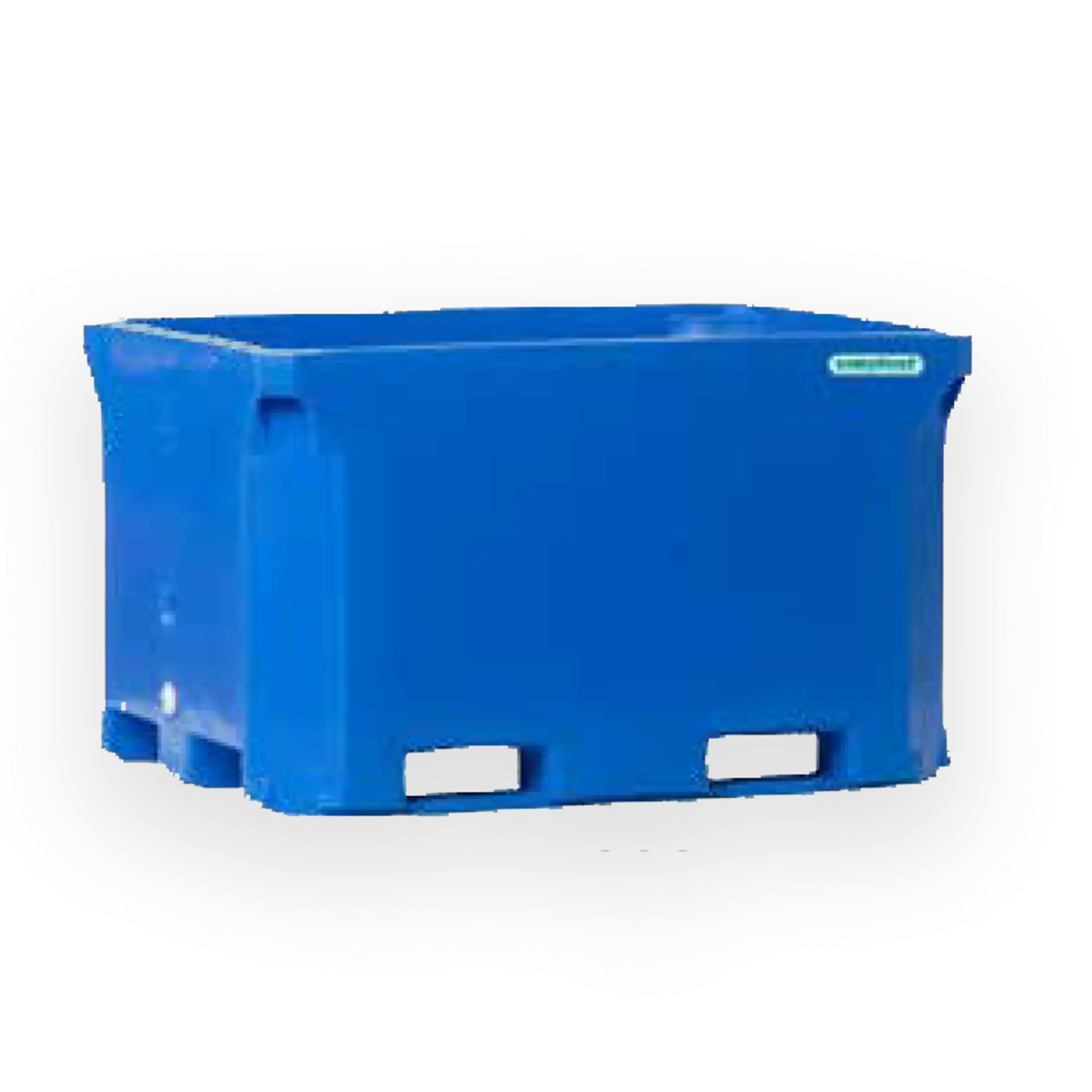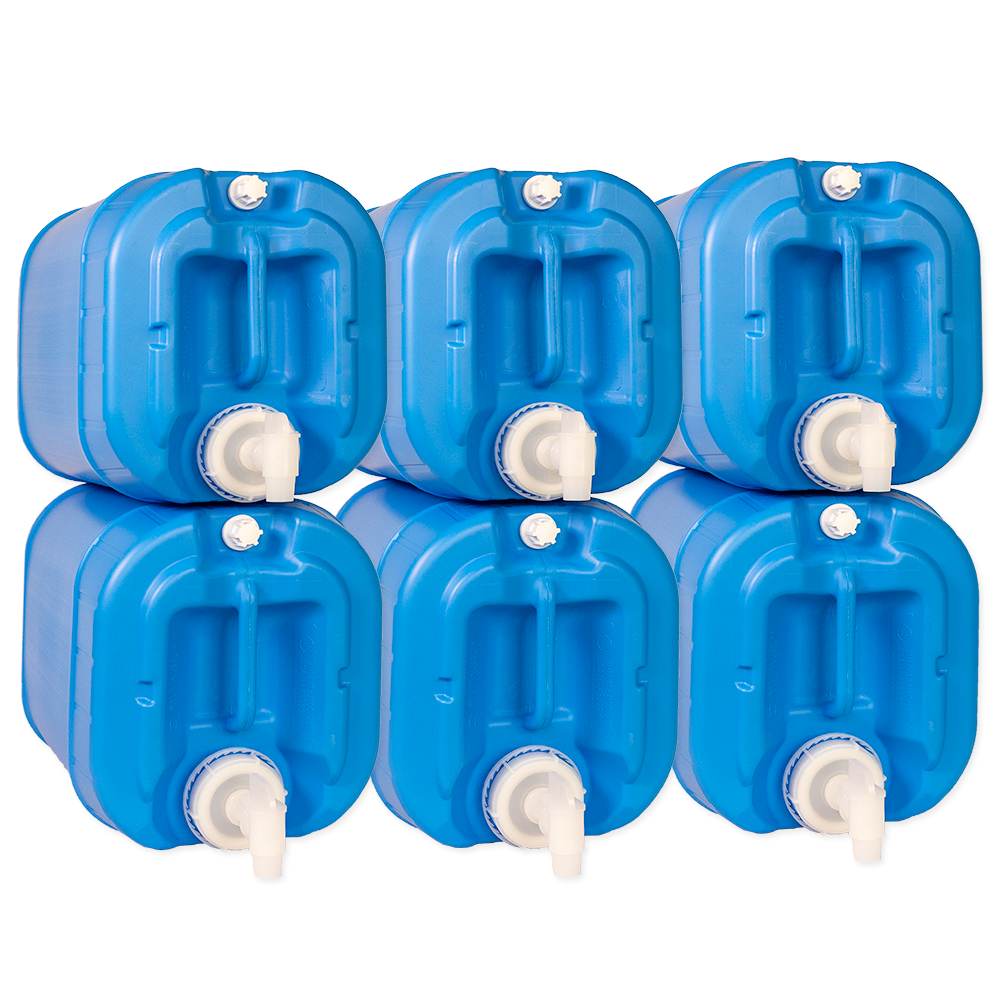A quick guide to handling and storing items with plastic bulk containers
Wiki Article
All Regarding Mass Plastic Containers: Benefits, Applications, and Industry Insights
Bulk plastic containers play a significant duty in various industries, offering benefits that boost effectiveness and sustainability. Their light-weight nature reduces delivery expenses, while their longevity warranties risk-free storage space and transport of diverse items. As business increasingly seek environmentally friendly solutions, the demand for these containers is growing. This elevates crucial questions about the products used and the fads influencing their layout. What ramifications do these variables have for the future of bulk plastic containers?Advantages of Bulk Plastic Containers
Bulk plastic containers offer a multitude of advantages in numerous sectors. Their light-weight layout significantly reduces transportation expenses, enabling effective logistics and easier handling. Furthermore, these containers give toughness and resistance to weather aspects, chemicals, and physical effect, ensuring the secure storage and transportation of goods. The convenience of bulk plastic containers enables them to be built into numerous shapes and dimensions, dealing with specific market demands.
Typical Applications Throughout Industries
While various industries make use of bulk plastic containers, their applications are specifically famous in markets such as food and drink, pharmaceuticals, farming, and production. In the food and beverage market, these containers are crucial for saving and delivering products like grains, liquids, and ready dishes, ensuring quality and safety. The pharmaceutical field depends on bulk plastic containers for secure storage of drugs and injections, keeping conformity with stringent regulations.In agriculture, these containers assist in efficient handling and transport of produce, plant foods, and chemicals, while likewise supporting sustainable practices through recyclability. Manufacturing industries utilize bulk plastic containers for parts storage space and setting up line operations, advertising organization and operations effectiveness. Additionally, these containers serve a substantial duty in logistics and supply chain management, simplifying the movement of products across various sectors. In general, the convenience of bulk plastic containers makes them vital throughout numerous industries.
Material and Style Factors To Consider
When picking bulk plastic containers, material and style considerations play a crucial duty in making certain performance and compliance with industry criteria. The selection of product considerably affects the container's sturdiness, weight capacity, and resistance to ecological elements. Typical materials consist of high-density polyethylene (HDPE) and polypropylene, recognized for their stamina and chemical resistance.Layout aspects, such as closure, shape, and dimension mechanisms, additionally affect use. Containers with ergonomic takes care of and stackable layouts enhance storage performance and ease of transport. Furthermore, functions like airing vent or water drainage openings might be needed for certain applications, enabling air blood circulation or liquid elimination.
Conformity with safety policies, such as FDA authorizations for food-grade applications, is vital. plastic bulk containers. Generally, careful consideration of materials and design can optimize performance and long life, making certain that mass plastic containers meet the diverse needs of different sectors effectively
Fads wholesale Plastic Container Use
As markets develop, the usage of mass plastic containers is significantly influenced by sustainability and efficiency. Firms are choosing environment-friendly materials, such as recycled plastics, to decrease ecological impact while maintaining resilience. This shift is driven by consumer need for regulatory pressures and lasting techniques aimed at decreasing plastic waste.Furthermore, the fad toward automation in logistics and supply chain management is improving container layouts. Mass containers are now being crafted for compatibility with automated systems, enhancing functional efficiency. Light-weight layouts are likewise acquiring grip, as they minimize shipping prices and energy usage during transport.
On top of that, modification is ending up being a centerpiece, permitting companies to tailor containers to particular needs, thus optimizing space and capability. These trends mirror a wider commitment to sustainability, development, and performance within different sectors, making certain that bulk plastic containers proceed to play a vital role in modern supply chains.
Finest Practices for Storage Space and Transport
Effective storage and transport of mass plastic containers require adherence to best practices that enhance security and effectiveness. Containers must be stacked safely, assuring that weight is equally distributed to prevent tipping or damage. Utilizing pallets can promote less complicated movement and shield the containers from ground dampness. Additionally, appropriate labeling is necessary for fast identification and monitoring throughout transit.Temperature control is one more important variable; extremes can endanger the stability of the products. It is a good idea to keep containers in a climate-controlled atmosphere when necessary. For transport, selecting ideal automobiles developed for bulk loads guarantees stability and minimizes risk investigate this site throughout transit.
Normal assessments of containers prior to storage and transportation assistance determine any type of wear or damages, permitting prompt upkeep or substitute. By following these best practices, companies can optimize the lifecycle of mass plastic containers while preserving operational efficiency.
Regularly Asked Concerns

Are Mass Plastic Containers Recyclable After Use?
Yes, bulk plastic containers are commonly recyclable after usage. Recyclability depends on the material type and local recycling programs. Correct cleansing and sorting are necessary to ensure they are accepted by recycling facilities.
What Is the Life-span of Bulk Plastic Containers?
The life-span of bulk plastic containers commonly ranges from five to ten years, depending upon usage conditions, worldly top quality, and ecological variables. Bulk Plastic Containers. Correct upkeep can prolong their resilience, making them a lasting storage space remedy
Can Mass Plastic Containers Be Custom-made?
Yes, bulk plastic containers can be go to the website customized. Makers often provide alternatives for dimension, branding, material, and color, allowing services to tailor containers to their specific demands and improve their product presentation and functionality.Exactly How Do Mass Plastic Containers Compare in Cost to Alternatives?
Mass plastic containers commonly offer a lower price contrasted to options like steel or glass, because of their lightweight nature and resilience. This makes them an economical selection for organizations requiring effective storage space options.Are There Safety Rules for Utilizing Bulk Plastic Containers?

Mass plastic containers play a significant function in various sectors, providing advantages that enhance performance and sustainability. While different markets make use of bulk plastic containers, their applications are particularly popular in sectors such as food and drink, pharmaceuticals, agriculture, and manufacturing. Manufacturing industries use bulk plastic containers for parts storage space and assembly line operations, advertising company and operations performance. When choosing mass plastic containers, material and layout considerations play a vital role in making certain capability and compliance with market requirements. As sectors advance, the use of mass plastic containers is increasingly affected by sustainability go to these guys and performance.
Report this wiki page